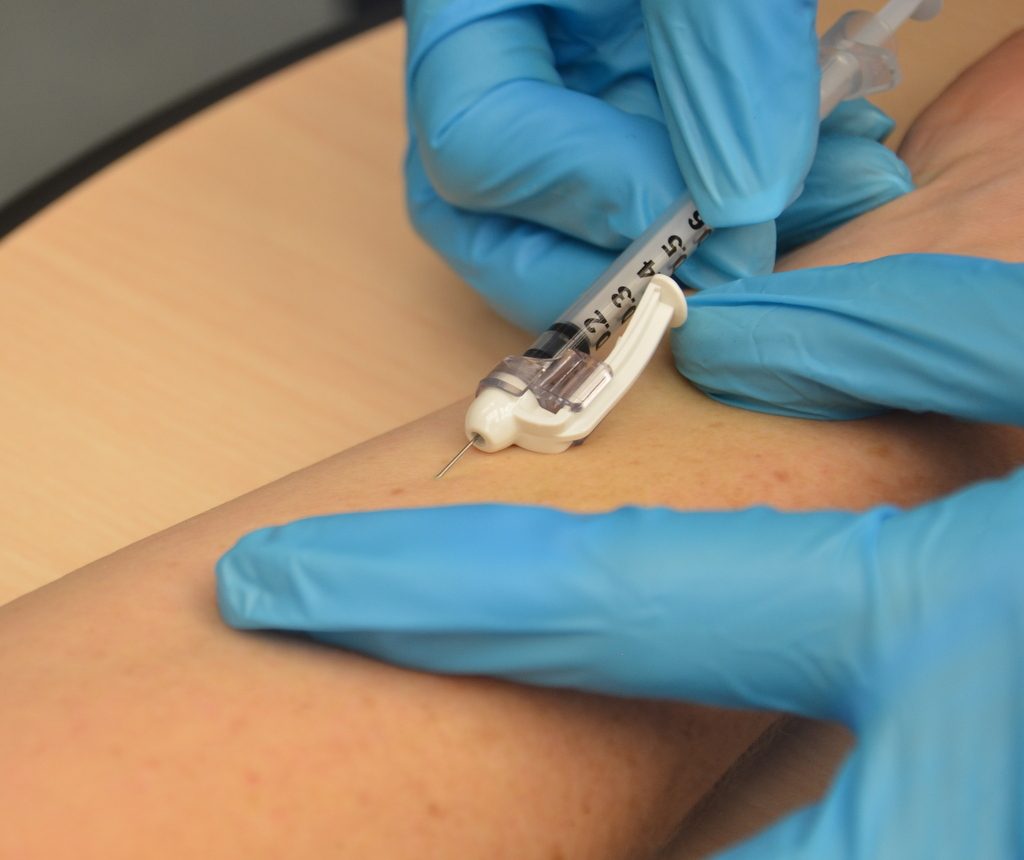McKesson Corp Accused of Pooling Cancer Medication for Profit
A lawsuit filed late last Tuesday afternoon in New York federal court alleges that McKesson Corp, one of “Big Three” U.S. drug distributors, has been skimming excess oncology drugs from prepackaged vials such as Aloxi, Procrit, and so on.
Pharmaceutical company McKesson and two of its subsidiaries employed a scheme to repackage the “overfill” from these vials of oncology drugs into non-sterile syringes, sometimes with fake product codes and expiration dates. These new syringes were then sold to cancer centers, medical practices, and physicians. According to the new complaint required by the United States Pharmacopeial Convention, each vial initially contained as much as 10 percent more than would be put in a syringe, to guarantee that each syringe could be properly filled. The vials were labeled as single-use and the drugs have no preservatives that prevent bacteria from growing, especially after a single puncture. The distributor is meant to dispose of the left-over medication. According to George Carpinello, one of the plaintiff’s attorneys, McKesson allegedly “harvested” overfill, producing about one extra syringe for every ten legitimates ones.
Moreover, distributors aren’t charged for overfill. “They set up a scheme to give medical providers an opportunity to charge Medicare and Medicaid for free drugs, which is illegal” Carpinello added.
Omni Healthcare, a Florida-based healthcare provider, filed the lawsuit on behalf of itself, the federal government, thirty state governments, and the city governments of Chicago, New York City, and Washington, D.C. Omni alleged that since 2007, McKesson has repackaged medication and defrauded federal, state and local governments out of hundreds of millions of dollars. Omni estimated that since McKesson began this scheme, they have spent approximately $3 million on illegal oncology drugs.
McKesson could face a $10,000 fine per False Claims Act violation, as well as treble damages. The suit also claims Oncology Therapeutics Network, which McKesson acquired in 2007, and U.S. Oncology, which McKesson acquired in 2010, as defendants.
Even though non-sterile conditions can put the drugs into the state of being open to contamination, it remains unclear whether the alleged practice is harmful to patients. However, immune systems of cancer patients are especially vulnerable to bacteria and infections. McKesson “presumably assumed that any infections and resulting patient deaths would likely be falsely attributed to the patient’s disease and treatment, as opposed to healthcare providers’ unwittingly administering non-sterile and unapproved drugs,” according to the complaint.
Recently, in January 2018, McKesson faced lawsuits by attorneys general in Kentucky West Virginia, Delaware and New Mexico for ignoring shipments of suspiciously large orders by pharmacies of prescription opioid.




